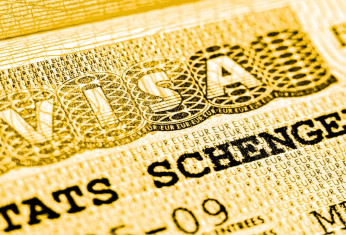
The real estate market in Thailand is rapidly developing, driven primarily by the country's appeal to tourists and investors alike. Whether you're interested in commercial or residential property abroad, it's crucial to approach the selection process with care. Such a purchase is a significant investment that can either become highly profitable or a source of ongoing hassles. Today, we’ll discuss how to buy property in Thailand without making mistakes.
Planning and Property Selection
The golden rule is not to rush. Thailand is currently experiencing a construction boom in both residential and commercial sectors, with developers offering a wide range of options. As an investor, you need to carefully weigh the pros and cons before making a final decision.
Defining Your Goals and Requirements
When choosing property in Thailand, consider the location, type of property, budget, potential returns, and personal preferences. For instance, determine whether you need a home for vacation, permanent residence, or rental purposes.
If you aim to rent out the property, the best choice would be a location in popular tourist areas with the necessary infrastructure and a high influx of tourists. On the other hand, if you plan to live there, quieter and more secluded areas might be more suitable.
Researching the Real Estate Market
Begin your research on the Thai real estate market using online platforms that specialize in property sales, and consult with local agents who can provide realistic evaluations of available options. Our team at WT Group is always ready to assist you with these and many other questions. We specialize in turnkey real estate transactions, from selecting the property to finalizing the deal. Feel free to reach out! Also, we recommend learning more about our company and our guarantees.
Purchase and Transaction Processing
Once you find a suitable property, you need to take several important steps to complete the purchase. In many cases, the best decision is to seek the help of experienced professionals who will manage the transaction from start to finish.
Preparing the Necessary Documents
To buy property in Thailand, you'll need a passport, proof of financial stability, a purchase agreement, and other documents that may require translation and certification. Additionally, be aware of the associated costs when buying property in Thailand:
- Transfer fee: up to 2%
- Agency fee: up to 5%
- Withholding tax: 1% (paid by the seller)
- Stamp duty: 0.5% (paid by the seller)
- Registration fee: 2% (paid by the seller)
The seller may also incur a special business tax of around 3.3%. Therefore, the seller bears a significant portion of the additional costs, but as a buyer, you should also be aware of them if you decide to sell the property in the future.
Completing the Transaction and Registering Ownership
The process of buying property is quite straightforward and typically doesn't pose any additional difficulties:
- Sign a purchase agreement with the seller.
- Pay for the property.
- Register the ownership.
- Receive a Chanote (title deed).
Once you complete these steps, you become the legal owner of the property in Thailand and can manage it as you wish, within the boundaries of the law.
Post-Sale Management and Maintenance
After completing the transaction and registering ownership, the next important stage is property management and maintenance. This phase generally doesn't involve significant challenges, but some aspects are worth discussing in detail.
Registering Ownership and Tax Obligations
After purchasing the property, you must register the ownership with local authorities and familiarize yourself with the tax obligations associated with property ownership in Thailand. This step is crucial to avoid legal issues in the future.
It's worth noting that Thailand is one of the few countries where you cannot obtain residency or citizenship by purchasing property. These statuses are only granted through naturalization after residing in the country for several years.
Property Management and Rental
Property management includes maintenance, repairs, paying necessary utility bills, and other tasks and expenses. Additionally, you can rent out the property or sell it to a new owner. Given that property prices in Thailand are steadily, albeit slowly, increasing, this offers the opportunity to make a good profit from the price difference between purchase and sale.
Conclusion
Buying property in Thailand requires careful planning and attention to detail. It's essential to consider all aspects—from location to legal nuances—to make an informed choice and ensure successful property ownership.
On the other hand, the process of acquiring residential and commercial real estate abroad is quite simple and transparent. Usually, neither the buyer nor the seller encounters significant difficulties or hidden obstacles. However, the assistance of qualified real estate professionals can still be invaluable. Contact WT Group to save yourself from unnecessary hassles.

Latest Articles
See more

